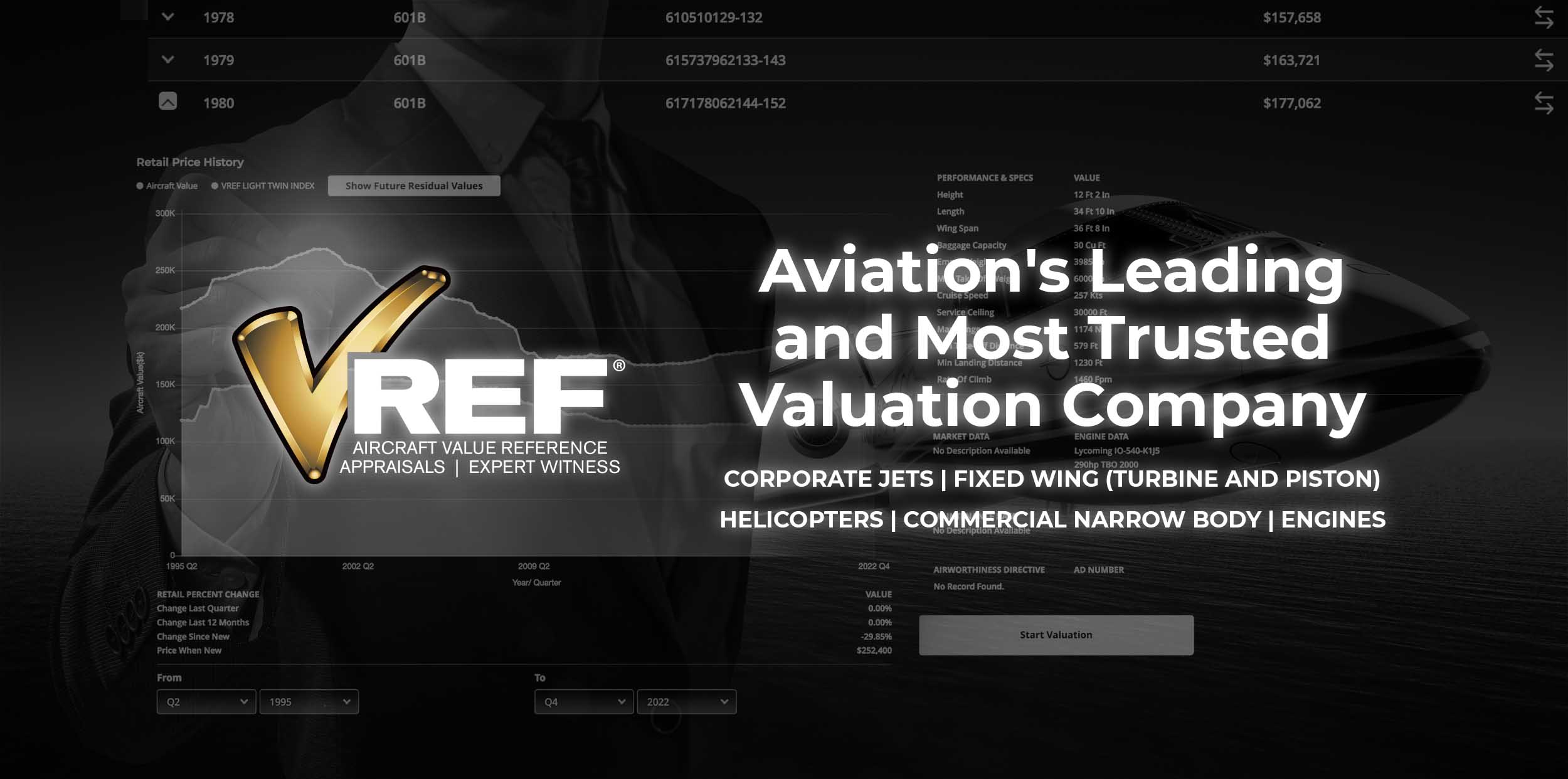By Jason Zilberbrand, ASA, CAA, ISA AM, AOA AM, MRAeS
When it comes to selling an aircraft, most people are above board, fully transparent, and open about the condition and pedigree of the plane. But with a super hot market, many owners with problematic aircraft find the perfect environment to get rid of the “lemon.” So what can you do to protect yourself when no one else will? What do unscrupulous sellers do to lure you into a purchase? Keep reading to find out.
Anyone that has been actively looking for an aircraft in a market like the one we have today can all share similar stories of frustration, false starts, lack of communication, ghost listings, and my all-time favorite, the unicorn. After spending three decades buying and selling aircraft, I can share more horror stories than you would believe. So here are some tips and tricks to keep you one step ahead of the scammers.
Your guard should be up – especially when an aircraft for sale looks too good to be true; after all, there is no buyer protection agency to help you when things go south. So tip number one is Caveat Emptor!
The truth is, there is likely something that needs to be looked into further by a professional. You should be able to do so freely in the pre-buy inspection.
In a dream world, you immediately find the perfect pre-owned aircraft with no issues at all. However, just like buying a home, you should do everything you can to avoid making a bad investment and ending up with a poor (or even unairworthy) aircraft.
Discover what you should be looking for to avoid major red flags, and become a master at buying a plane.
6 Major Red Flags To Avoid In an Aircraft Purchase
The Missing IndentifierThis is the one that mystifies me the most; let’s just cut to the chase. If you were buying a home and the seller didn’t bother to provide the address or city, would you even consider it? The answer should be no, and no one would argue the subject. However, replace said home with an aircraft, and it amazes me how many people will chase it thinking it’s real. The truth is there are many reasons why a seller or broker would hide the identity of an aircraft for resale. The number one reason why it is missing in a listing is due to a lack of control. Chances are the broker has no contract to sell it, and there is a good chance the actual owner is unaware their aircraft is being dangled like a worm on a hook. So rule number one is to avoid the ghost aircraft. You will save yourself grief and tons of bait and switch salesman talk.
1. The Overly Eager Seller
Let’s start with something you may not feel comfortable addressing at the moment with a seller. You should never feel pressured or rushed to decide from the seller if you have doubts (even in this insane market). You want to be sure that the seller answers your questions, your professional appraisal is complete, and that you have everything else you need to move forward with a decision.
A seller who is overly eager to make a sale or uses aggression to demand you make a decision right away may have an aircraft you want to walk away from buying. The seller could be hiding unknown issues or missing components like missing logbooks, corrosive damage, and several other things.
Stick to your guns and get all of the professional expertise you need from your broker, appraisal specialist, mechanic, and lawyer before you sign on the dotted line.
2. The Impossible To Negotiate With Seller
Some sellers may say their price is non-negotiable or firm. But because of the ever-changing market and condition of the aircraft, you may want to do a double-take before deciding to work with this seller.
While this may not be a deal-breaker for some (especially if they have an aircraft you want), know that someone unwilling to negotiate on the price will be challenging, if not impossible, to work with, and you always have options.
3. Missing Information About the Aircraft
Touching back a bit on an unmoving seller, a seller who doesn’t want to give you information should cause alarm.
First, a seller who is unwilling to provide basic information needed, such as an aircraft’s registration number or a spec sheet, will be tough to work with throughout the buying process.
Second, an uncommunicative seller or one who is unwilling to provide information may be doing so because they don’t have it or it doesn’t exist. Take note of sellers who “ghost” or ignore you after you’ve asked for specific information.
4. No-Fly Before You Buy
If you’re genuinely committed to an aircraft, make an effort to fly the plane beforehand. But stay alert and be wary of a seller who is unwilling to do a test flight with you. Some sellers hesitate to do a test flight because they aren’t sure if you’re serious about purchasing their aircraft. However, if you are transparent and genuine about your interest, a test flight should be available to you.
5. Missing Logbooks
An aircraft with missing logbooks is a huge red flag. Never purchase a plane if its logbooks are not available, are missing, including partial records. Don’t accept any excuses, and ask to see them before going out to the aircraft.
Properly documented logbooks give valuable information about maintenance, inspections, repairs, STC’s, airworthiness directives, and service bulletins.
Undocumented repairs, maintenance, and missing logbooks altogether are the owner’s responsibility.
An aircraft that is missing this information should not be resold, much less operated. Keep in mind that a seller who does not offer this type of information may hope you don’t know better to ask for it. So even if you aren’t an experienced buyer, this one question may protect you from being tricked into a bad deal.
6. No Photos
Along with a spec sheet, you’ll want to see all parts of the plane that you can before truly considering a potential purchase. This is where you ask for photos taken of the outside, interior, and panel. Ensure you’re getting real pictures and not a set of 10-year-old historical images. Photography has changed over the last two decades, and it is nearly impossible to tell just from looking at the photo when it was taken. Photoshop, altering software, and filters make an ugly duckling appealing. Poor images, lousy lighting, unclean surfaces, lack a complete view, no close-ups are all red flags. Everyone has a camera today, so this request should always be fulfilled.
What Should You Take Care of Before Buying an Aircraft?
Hire a broker to help you in your search for an aircraft. Do your research and use a broker who knows the industry and has quality connections with others within the industry. A good broker can help navigate you through the entire buying process and help put your mind at ease. A good broker knows how to find an aircraft before the whole world knows about it, and in a hot market like the one we have today, over 60% of transactions are occurring off the market. A great real estate broker is defined by their listings and pocket listings; an aircraft broker is no different. HIre someone who can make the process easier!
A pre-purchase inspection is something that you should do before buying an aircraft. There is no excuse not to go looking before you buy. This can help pinpoint problem areas, damage, and other factors that could take away from its value or, worse yet, kill the deal. Choose an aircraft mechanic you can trust and read their report carefully. Remember, no two pre-buys are the same, and it is up to you to find a competent A&P to audit the logbooks and the aircraft. If you rely on someone with no experience in the plane you are buying, they will not inform you of known trouble areas or potential expenses. Hire someone who knows the model type intimately.
Chances are, the current owner values their aircraft and thinks it’s in “perfect condition.” But they may be too close to the situation to see the plane in the same light as someone who appraises them for a living. An appraiser’s job is to be completely honest, accurate, and unbiased. That’s why having a professional appraiser for an aircraft is so critical to the buying process.
Buying an Aircraft with Confidence is Possible
It can be tough to walk away from an aircraft you became attached to quickly. But if one or several of these red flags are present, it is best to walk away while you can simply.
Otherwise, you can be stuck closing a deal on an aircraft that is wrong for you, or even worse – is in far more inferior condition than you initially thought. When you’re spending your hard-earned money on an aircraft, you should be sure that it’s the right thing to do.
Before you buy, reach out to VREF for your appraisal and valuation needs. With over 27 years in the business, we understand how important your current or potential aircraft is to you. That’s why we aim every day to offer the most reliable appraisal and valuation services on the market.
Contact us today for your aircraft appraisal or valuation needs.



